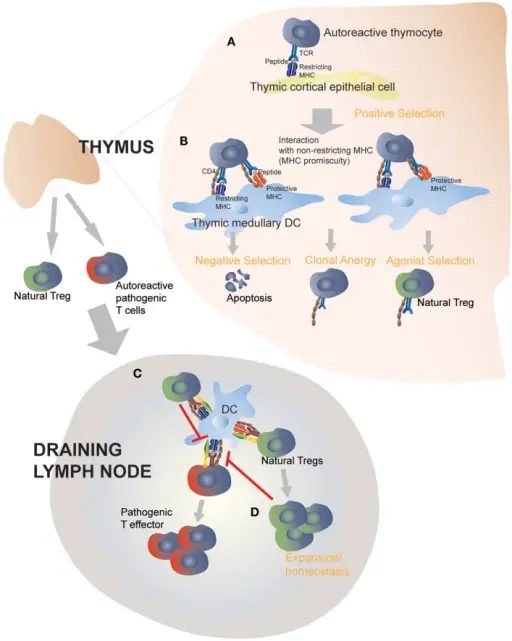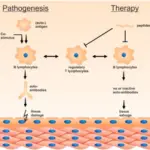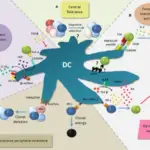The role of anergy in immunologic tolerance is the lack of responsiveness to a self-antigen despite the presence of antigen-specific lymphocytes, causing anergic cells to persist but fail to respond to the antigenic stimulation.
What is the Role of Anergy in Immunologic Tolerance?

(A). In the absence of protective MHC molecules, negative selection is defective and fails to purge the repertoire of pathogenic autoreactive thymocytes (not shown) (B). Transgenic expression of disease-protective MHC class II molecules on dendritic cells leads to enhanced negative selection and clonal anergy of autoreactive, MHC-promiscuous thymocytes, and promotes autoreactive Treg differentiation and functional development (C). Thymic derived Tregs then exit into the periphery and suppress the activation of pathogenic T cells by directly acting on autoantigen-loaded APCs. This step does not require protective MHC class II molecules, although a role of protective MHC class II molecules, expressed on peripheral APCs, in perpetuating autoreactive Tregs or enhancing their homeostasis cannot be ruled out (D). MHC Class II Polymorphisms, Autoreactive T-cells, and Autoimmunity: Tsai S, Santamaria P - Frontiers in immunology (2013). Not altered. CC.


